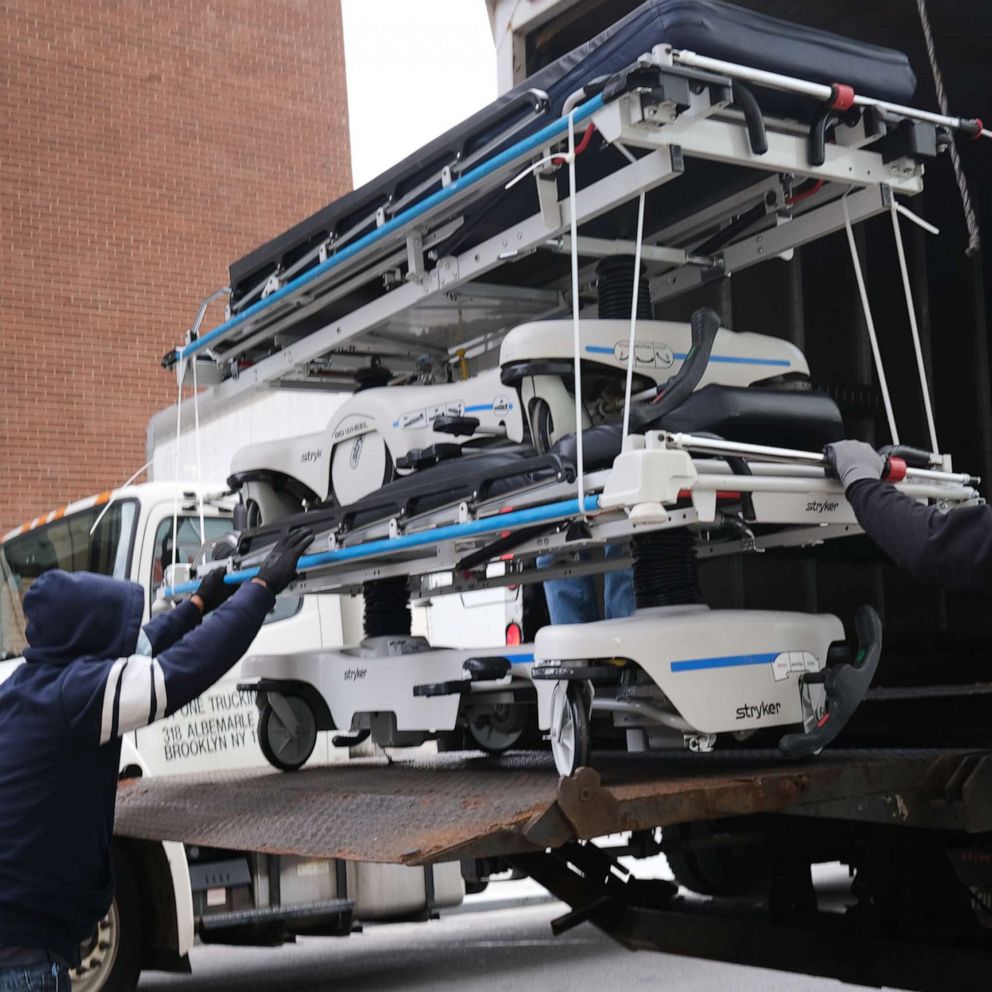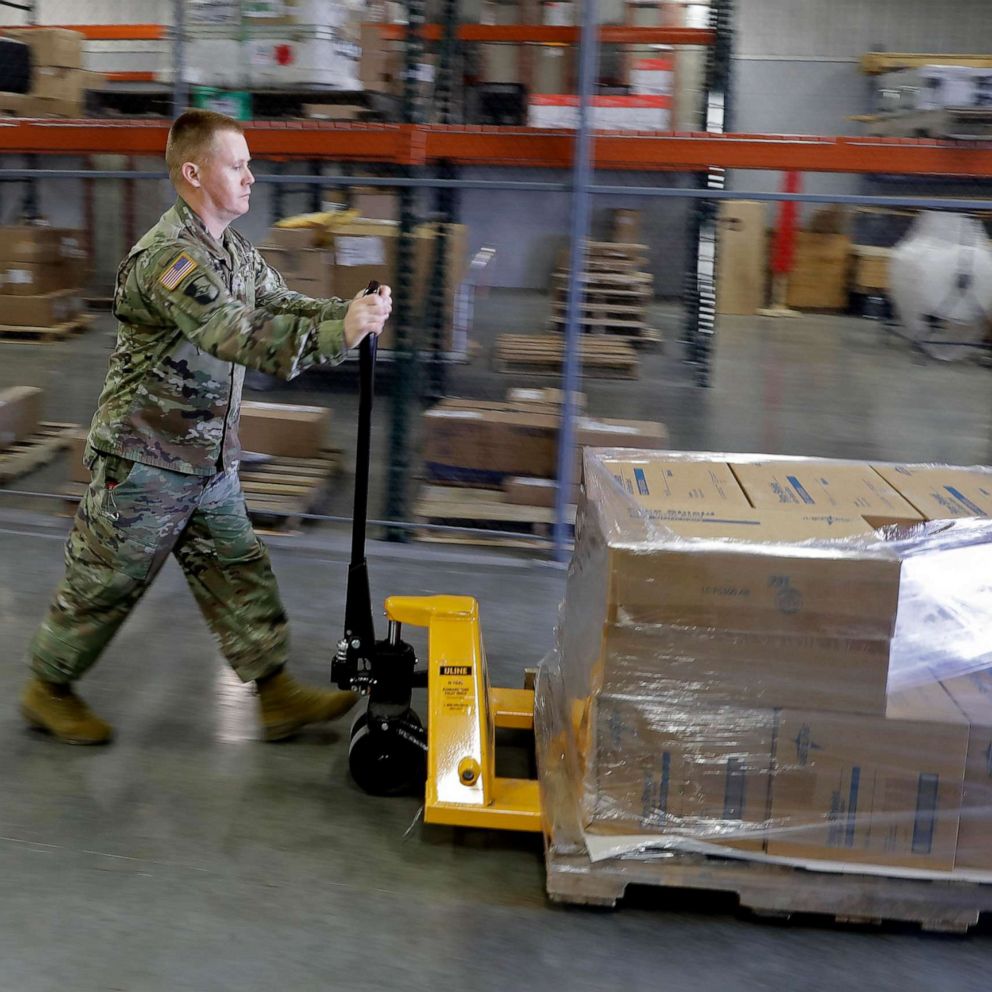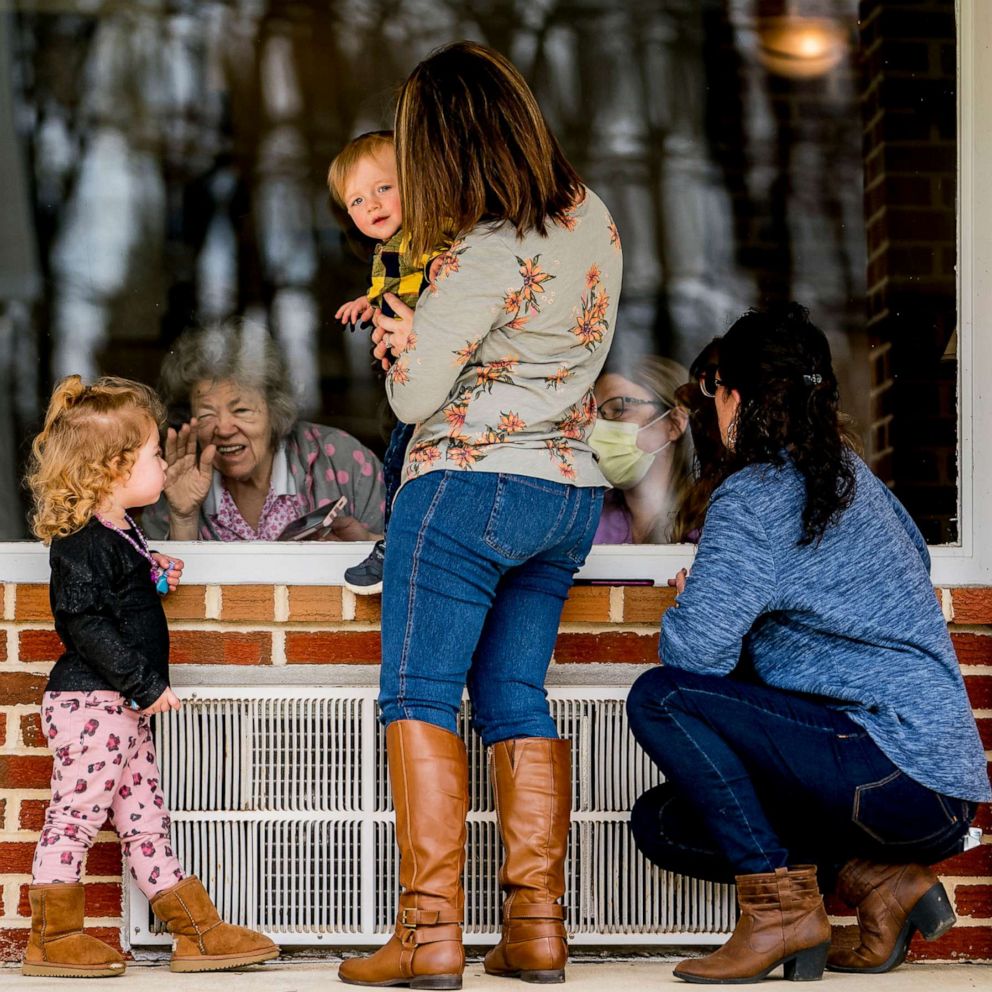As Passover nears, a struggle between community and coronavirus for some Orthodox Jews
NY Gov.: 'It's not about religion... None of us has the right to be reckless..."
The centuries-old premium Jewish communities place on religious gatherings is running headlong into the need for isolation amid the unyielding coronavirus pandemic.
Like other religious institutions, Jewish communities around the country are attempting to adapt their traditions to government guidance designed to protect against the virus' spread, like holding online services and gatherings: virtual prayer in the wake of the current epidemic. But in and around New York, authorities complain that, far from discouraging gatherings, a few Orthodox Jewish leaders are leading prayer groups, celebrations and receptions that have been specifically prohibited by emergency orders in both New York and New Jersey.
"I don't care if you're Orthodox Jews, Catholic, Christian. It's not about religion," New York Governor Andrew Cuomo said Monday. "What right do you have to act irresponsibly? None of us has the right to be reckless in our behavior."
Manashe Khaimov, Founding Director of the Bukharian Jewish Union, said his community has closed synagogues and urged the people to stay home and follow social distancing guidelines, though it has been a sacrifice.
"Everything we do in the Jewish tradition, it's around gathering," said Khaimov, whose Orthodox group hails from Central Asia and has a population of over 50,000 in New York alone, concentrated in Queens neighborhoods like Forest Hills and Kew Gardens. "You cannot pray by yourself; holidays are about getting together."
Tune into ABC at 1 p.m. ET and ABC News Live at 4 p.m. ET every weekday for special coverage of the novel coronavirus with the full ABC News team, including the latest news, context and analysis.
But, he said, "People are being very cooperative, walking with their masks, it's pretty empty, which I think is a good sign... The rabbis are very supportive of that."
This week Jews celebrate Passover, a commemoration of freedom from slavery that includes the command "let all who are hungry come and eat" during the shared meal known as the Seder.
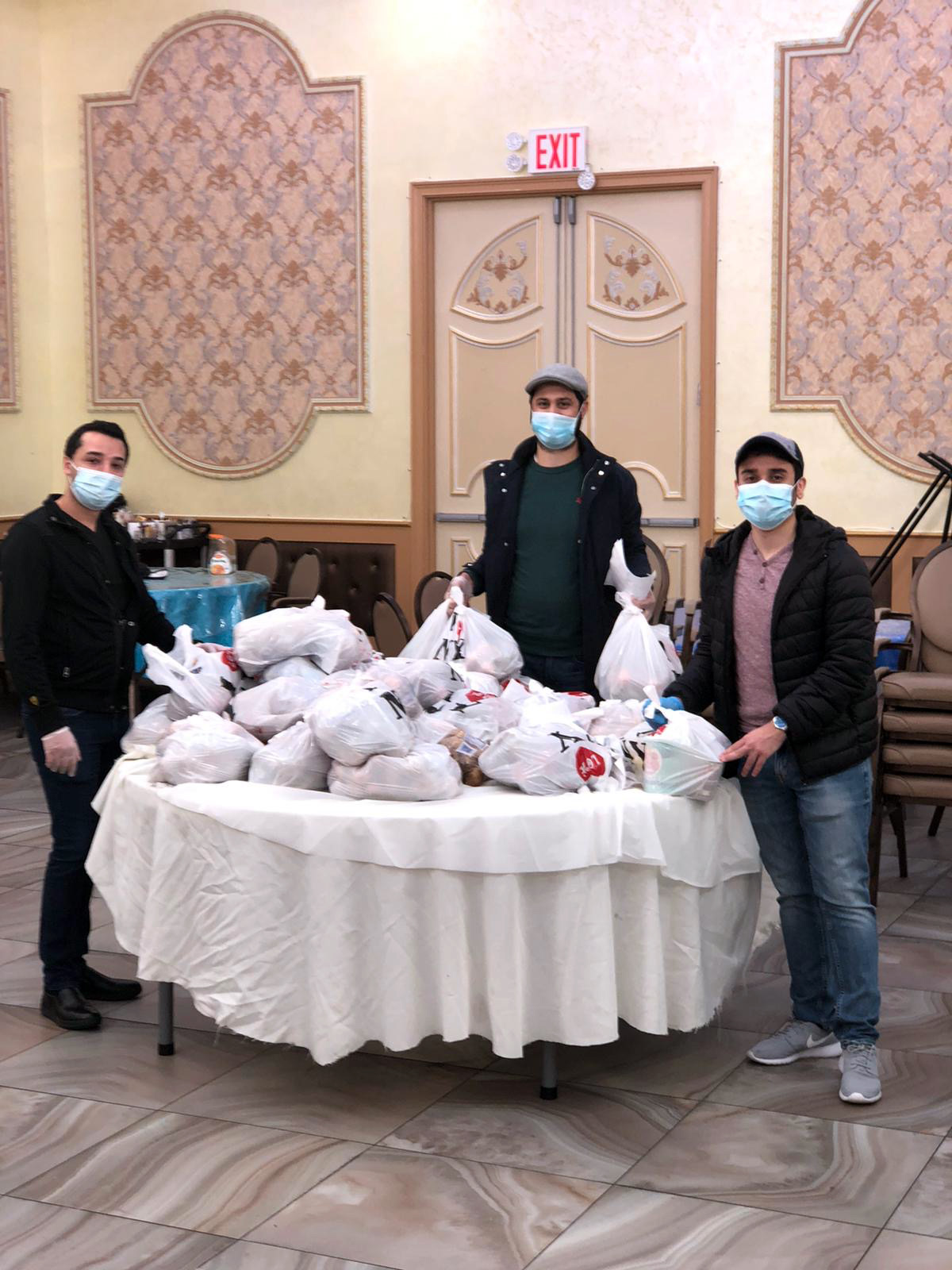
A letter from the Rabbi Rick Jacobs, the president of the Union for Reform Judaism, outlines both the painful hardship -- and the need -- for welcoming a different kind of tradition this year.
"As the global pandemic of COVID-19 changes life on planet Earth, there is simply no way that our holiday observance could resemble years past," Rabbi Jacobs writes. "Physical distancing, sheltering-in-place, and pervasive fears are significant obstacles to making Pesach happen at all, let alone embracing it as a time of joy and renewal.
"We need this festival of liberation, now as much as ever... our doors been closed to preserve the health of those inside," Rabbi Jacobs continued. "We can easily set another place at our virtual table. This year, let us throw open the technological doors to our homes to all those who may be feeling lonely or isolated or who need the connection and spiritual renewal that our seder can provide."
But, like some Christians, other groups have faced backlash in recent days for neglecting social distancing guidelines, and failing to limit typical religious activities.
In New Jersey, the problem is a daily concern in Lakewood in Ocean County. The former retreat town has seen a population explosion among the ultra-Orthodox, who flocked to the area because of the rabbinic yeshiva, Yeshiva Beth Medrash Govoha, touted as the second-largest institution of its kind in the world.
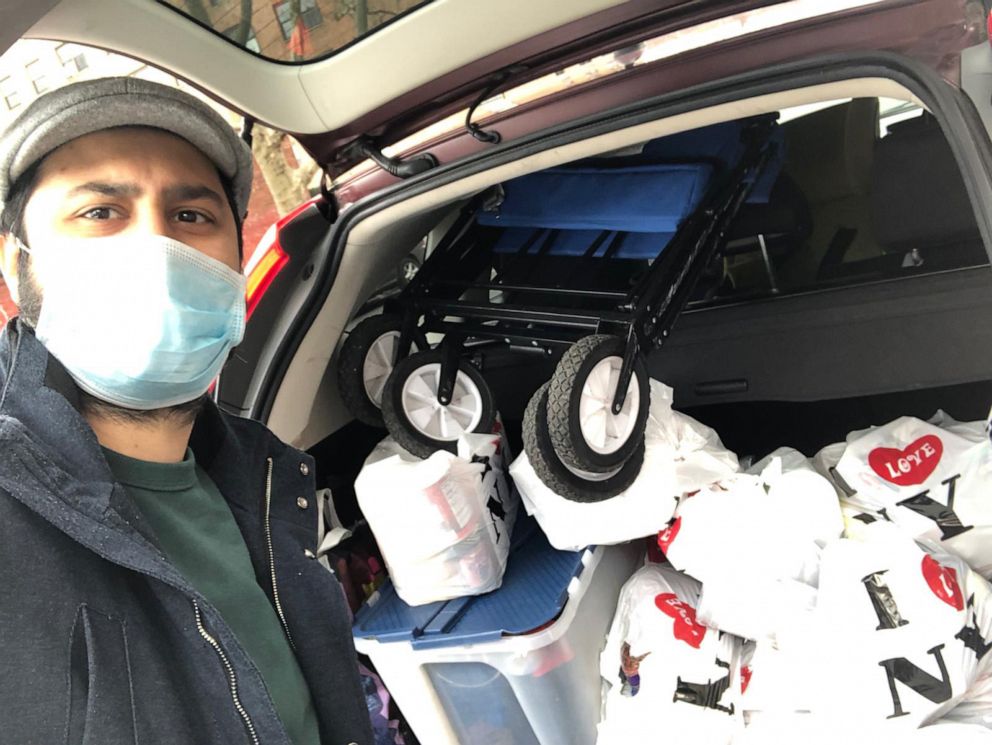
According to a New Jersey State Police report reviewed by ABC News, local law enforcement was concerned not only with people disregarding social distancing, but potential retaliation against them for it. State troopers are now "working on a request from Lakewood PD for potential violent retaliation against the Orthodox Jewish community from unknown blood gang members as a result of non-compliance of statewide social distancing orders." The Bloods gang have become a prominent criminal component in New Jersey, and they're known for having a presence in the Lakewood area.
More broadly, authorities are wary of the impact of such backlash against Orthodox groups, for both perceived and real failure to follow social distancing guidelines - especially for a people that have already weathered centuries of discrimination and violence. The Anti-Defamation League has warned that the virus' growth has also seen a global surge of "anti-Semitic, xenophobic, and hateful messages and conspiracy theories" proliferating online.
In an interview with NJTV, Rabbi Aaron Kotler, president of the yeshiva, said people in his community violating the social rules for a funeral last week "were wrong."
"We begged them not to. They were wrong…And we're happy law enforcement cracked down on them," he said.
On March 20, Eliyohu S. Zaks, 49, was charged with maintaining a nuisance for holding a wedding in Lakewood in violation of the emergency order prohibiting large gatherings.
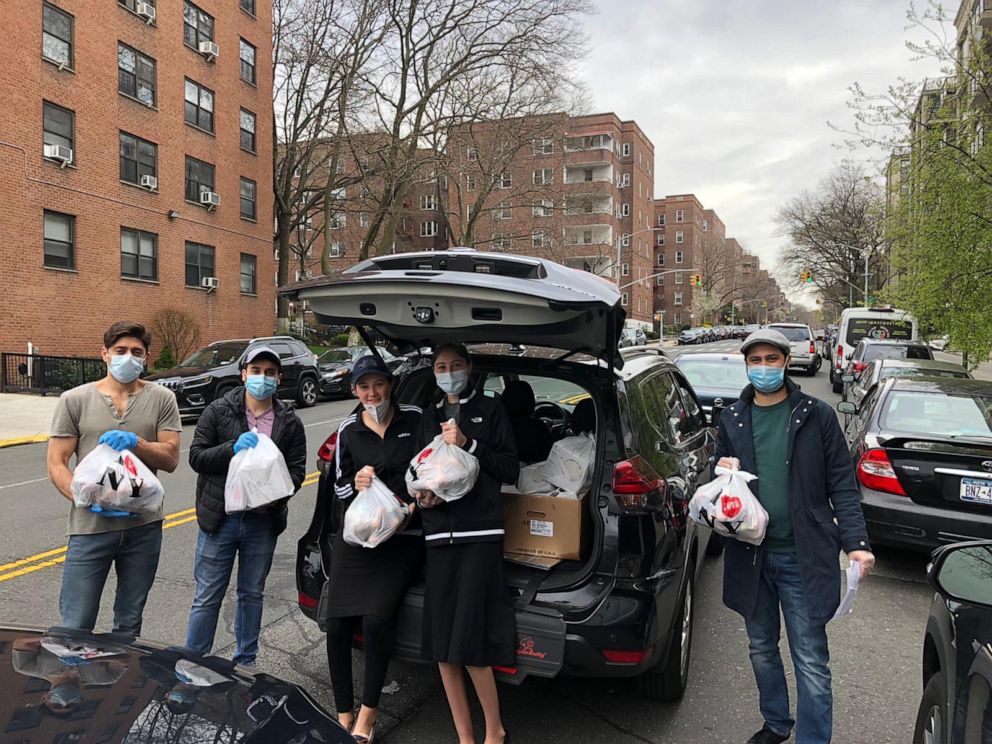
Nearly a week later, William J. Katzenstein, 39, of Lakewood, was charged with violating the emergency orders for holding a wedding with 20 to 30 people in his backyard.
Now with Passover nearing, what was already an extremely isolating disease stands in stark relief to traditions of fellowship across many faiths.
Sunday, Gov. Cuomo emphasized that the fight against the spread of COVID-19 knows no creed.
"We are coming into Palm Sunday, Easter Week, Passover," Cuomo said at his daily briefing. "I had to cancel the St. Patrick's Day Parade. You know a lot of people got offended at that, but you can't have large gatherings where you could have one or two people infecting people. And just because it is a religious gathering - you know, the virus is a nonreligious enemy."
Cuomo directly referenced the hamlet of Monsey, and Rockland County north of New York City, which has become a hub of Hasidic life, saying his team was "working very closely" with the community to convey the urgency of what must be done to combat the virus.
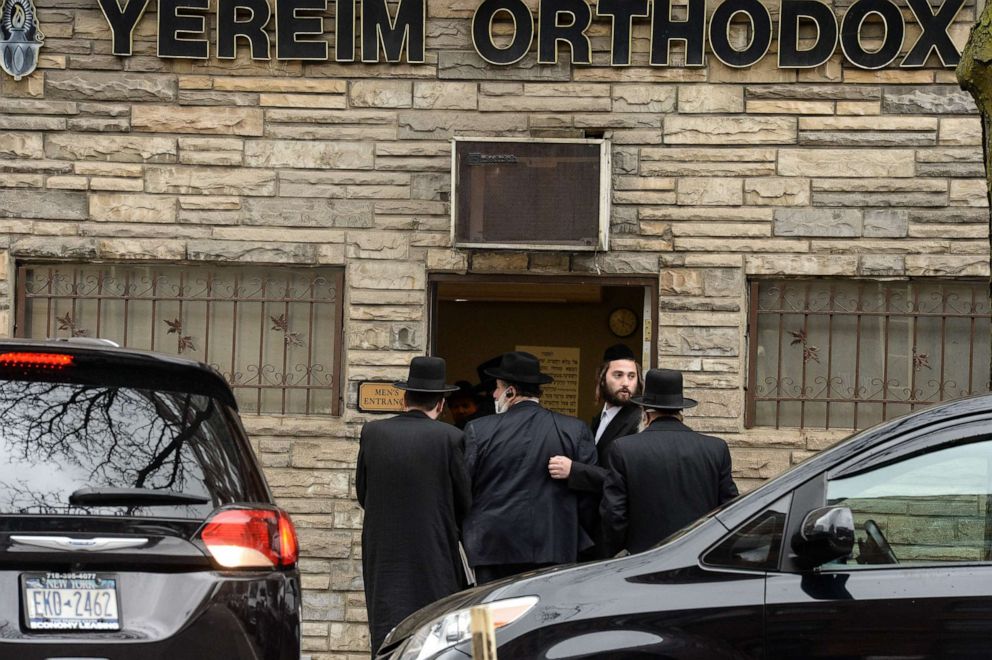
Woodmere, a predominantly Jewish community near John F. Kennedy International Airport, has among the highest totals of coronavirus cases in Nassau County, which Saturday Cuomo described as like "a fire spreading" on Long Island. There are nearly 15,000 positive coronavirus cases in Nassau County, with 258 in the Woodmere area alone, according to the local government.
Days before New York imposed bans on public gatherings, a group of Orthodox Jews in Woodmere came out in large numbers to celebrate the Jewish holiday of Purim.
Now, much of religious life occurs online, or from a car window.
As coming together has become impossible, reaching out is now a necessity to keep tradition alive. Khaimov and volunteers from the Queens Jewish Community Council have been driving around the neighborhood for a week, delivering Passover care packages door to door.
"We wanted to avoid the big lines, we didn't want to go through that chaos," Khaimov said. "So the elders especially, they can stay at home, you see them cracking their doors open, putting their gloves on, they have wipes, people are really taking this seriously."
"I don't know what to say," Khaimov continued. "This year is going to be a real Pesach -- where we all will have to be locked in, being free while not really being free, and doing it to protect others, protect ourselves. But celebrating freedom, while being so careful not to be too free."
What to know about coronavirus:
- How it started and how to protect yourself: Coronavirus explained
- What to do if you have symptoms: Coronavirus symptoms
- Tracking the spread in the U.S. and worldwide: Coronavirus map
